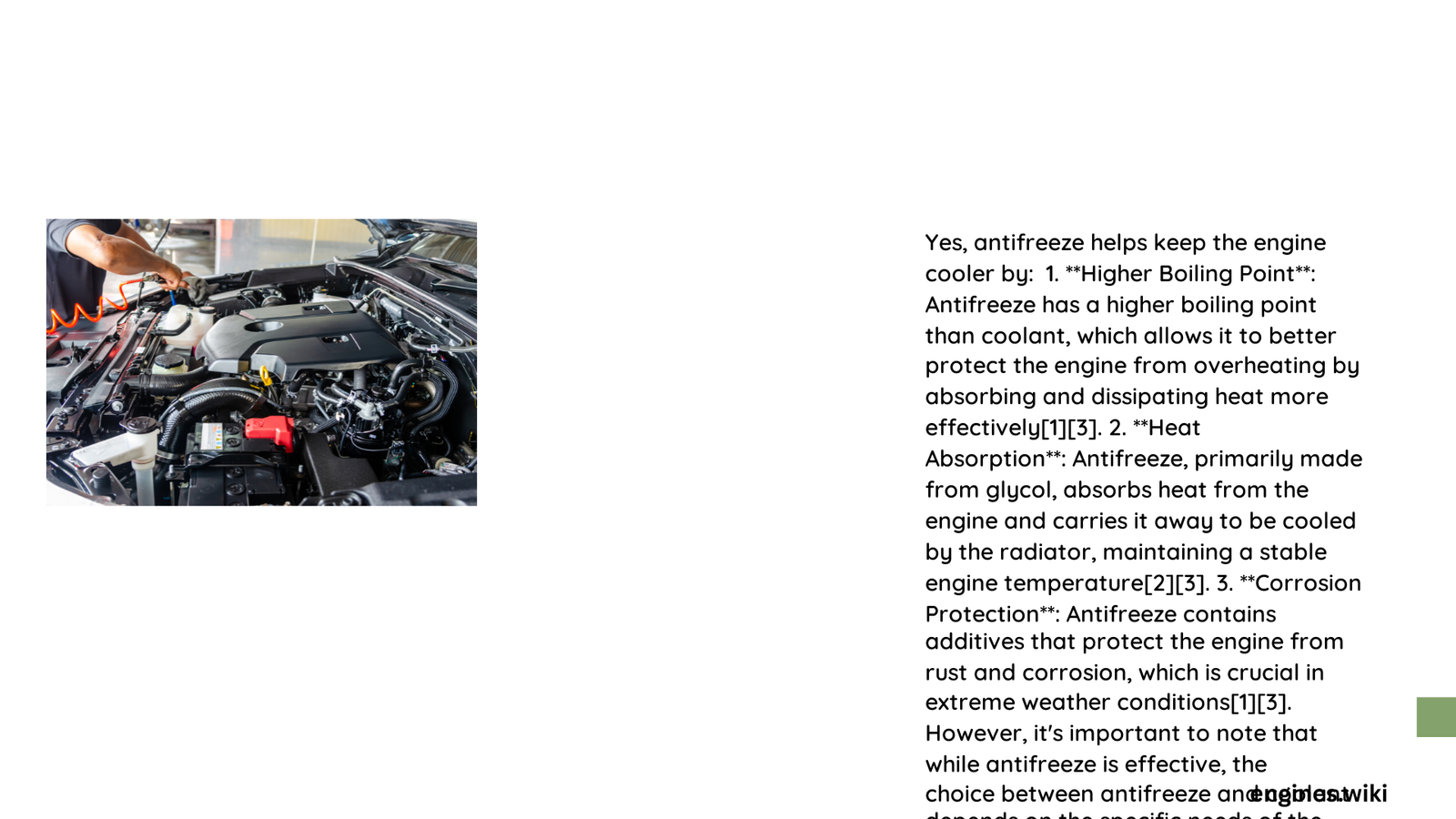Antifreeze is a critical automotive fluid that plays a sophisticated role in engine temperature management. By leveraging advanced chemical properties, antifreeze solutions dramatically enhance thermal conductivity, prevent freezing, and stabilize engine temperatures across extreme environmental conditions. Its unique molecular structure allows for superior heat transfer and temperature regulation, making it far more effective than water alone in maintaining optimal engine performance and preventing thermal stress.
What Makes Antifreeze Unique in Engine Cooling?
How Does Thermal Conductivity Impact Engine Temperature?
Thermal conductivity represents the ability of a substance to transfer heat efficiently. For automotive cooling systems, this property is crucial. Antifreeze solutions, primarily composed of ethylene glycol, demonstrate remarkable thermal transfer characteristics:
| Concentration | Thermal Conductivity | Freezing Point | Boiling Point |
|---|---|---|---|
| 30% Solution | 0.243 Btu-ft/hr-ft² | -10°F | 212°F |
| 50% Solution | 0.207 Btu-ft/hr-ft² | -34°F | 226°F |
| 70% Solution | 0.180 Btu-ft/hr-ft² | -50°F | 240°F |
Key Thermal Performance Factors
Antifreeze helps keep engine cooler through several critical mechanisms:
- Enhanced Heat Dissipation
- Prevents localized heat accumulation
- Distributes thermal energy more uniformly
-
Reduces potential for hot spots in engine block
-
Temperature Range Expansion
- Widens operational temperature tolerance
- Maintains liquid state across extreme conditions
- Prevents freezing and boiling
What Happens Without Proper Antifreeze?
Without appropriate antifreeze, engines face significant risks:
- Potential freezing in cold temperatures
- Increased corrosion rates
- Reduced heat transfer efficiency
- Higher likelihood of mechanical failure
How Much Temperature Difference Can Antifreeze Create?
Empirical studies demonstrate that properly mixed antifreeze solutions can:
- Reduce temperature fluctuations by 10-20°F
- Maintain consistent engine temperature
- Improve overall thermal stability
Optimal Antifreeze Mixture Strategies

Which Ratio Provides Best Cooling Performance?
The 50/50 ethylene glycol to water ratio typically offers the most balanced approach:
- Freeze protection to -34°F
- Boiling point elevation to 226°F
- Balanced thermal conductivity
- Minimal performance compromise
Maintenance Considerations for Maximum Effectiveness
What Impacts Antifreeze Performance Over Time?
Critical maintenance factors include:
- Regular concentration checks
- Monitoring for contamination
- Periodic system flush
- Using manufacturer-recommended formulations
Technical Limitations and Challenges
While antifreeze is highly effective, it’s not without constraints:
- Higher cost compared to water
- Potential environmental toxicity
- Requires careful handling
- Periodic replacement necessary
Conclusion: A Precision Cooling Solution
Antifreeze represents a sophisticated engineering solution for managing engine temperatures, offering far more than simple freeze protection. Its complex molecular structure and carefully designed properties make it an indispensable fluid in modern automotive thermal management.
Practical Recommendations
- Use manufacturer-recommended antifreeze
- Maintain proper concentration
- Perform regular cooling system inspections
- Replace antifreeze according to service intervals
